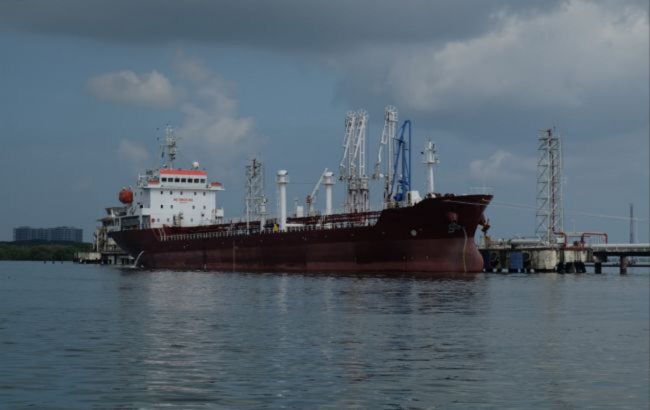Espionage and 'shadow fleet': Russia steps up provocations across Europe
 Illustrative photo: oil tanker in transit (Getty Images)
Illustrative photo: oil tanker in transit (Getty Images)
Western intelligence agencies have reported that Russia is using its "shadow fleet" as a platform for launching drones into the airspace of EU and NATO countries, according to a statement from Ukraine’s Center for Countering Disinformation under the National Security and Defense Council.
Two Russian citizens have been charged in Poland with spying for the FSB. According to investigators, in 2022, they collected and passed information to Russian intelligence about Russian opposition figures living in Poland, as well as about individuals and organizations assisting them.
At the same time, Western intelligence agencies are recording Russia’s use of its “shadow fleet” as a platform for launching drones into the airspace of EU and NATO countries.
Since September, drones have appeared over airports in Denmark, Norway, Germany, Belgium, and other European states. The European Parliament has already pointed to Russia’s involvement in these incidents.
"The goal of such actions is multi-level destabilization, reconnaissance, and sabotage under ‘plausible deniability,’ testing air defense and civil aviation security systems, pressuring Ukraine’s allies, and undermining trust in institutions. The ritual ‘repainting’ of vessels, disabled transponders, route changes, and the use of cryptocurrencies are all elements of a single hybrid scheme," the Center for Countering Disinformation (CCD) said.
Threat from Russia's 'shadow fleet'
Earlier, the CCD reported that Russia’s so-called "shadow fleet" not only evades sanctions but also poses environmental and security risks.
"In addition to oil spills recorded near European shores, recent signals about drone reconnaissance launched from such tankers confirm that these vessels are instruments of a broader hybrid operation combining espionage, sabotage, and informational pressure," the center’s analysts said.
What Russia's 'shadow fleet' is
The EU is preparing sanctions against companies involved in fake flag registrations. Documents reviewed by the agency show that three companies provided forged Aruban, Curaçao, and Sint Maarten flags to at least eight vessels already under sanctions.
According to The New York Times, roughly one in six tankers worldwide now belongs to Russia’s shadow fleet, representing about 17% of the global tanker fleet.
At the beginning of 2025, analysts estimated that the Russian shadow fleet included around 940 vessels, a 45% increase compared to early 2024. The average age of these tankers exceeds 20 years, while legal commercial tankers average around 13 years.

